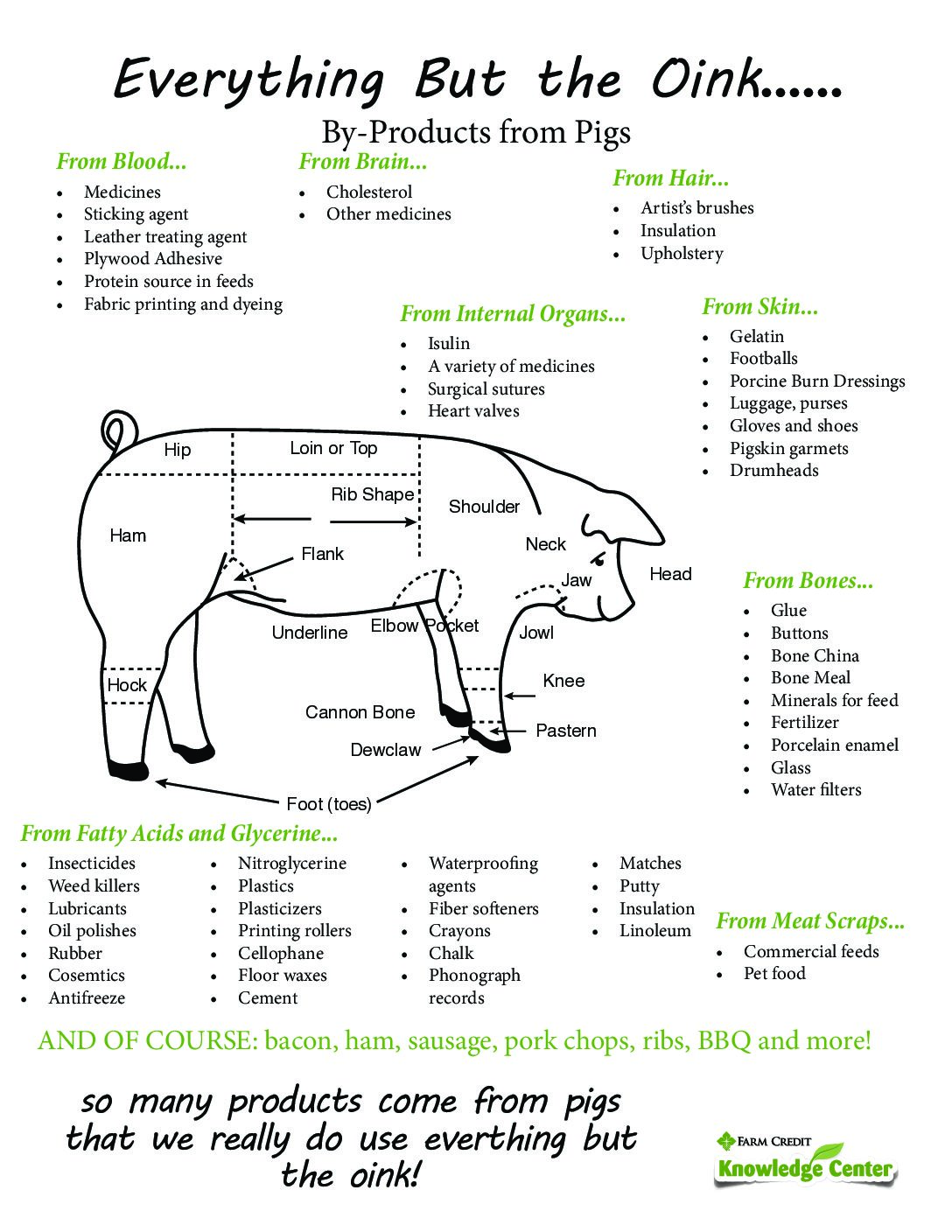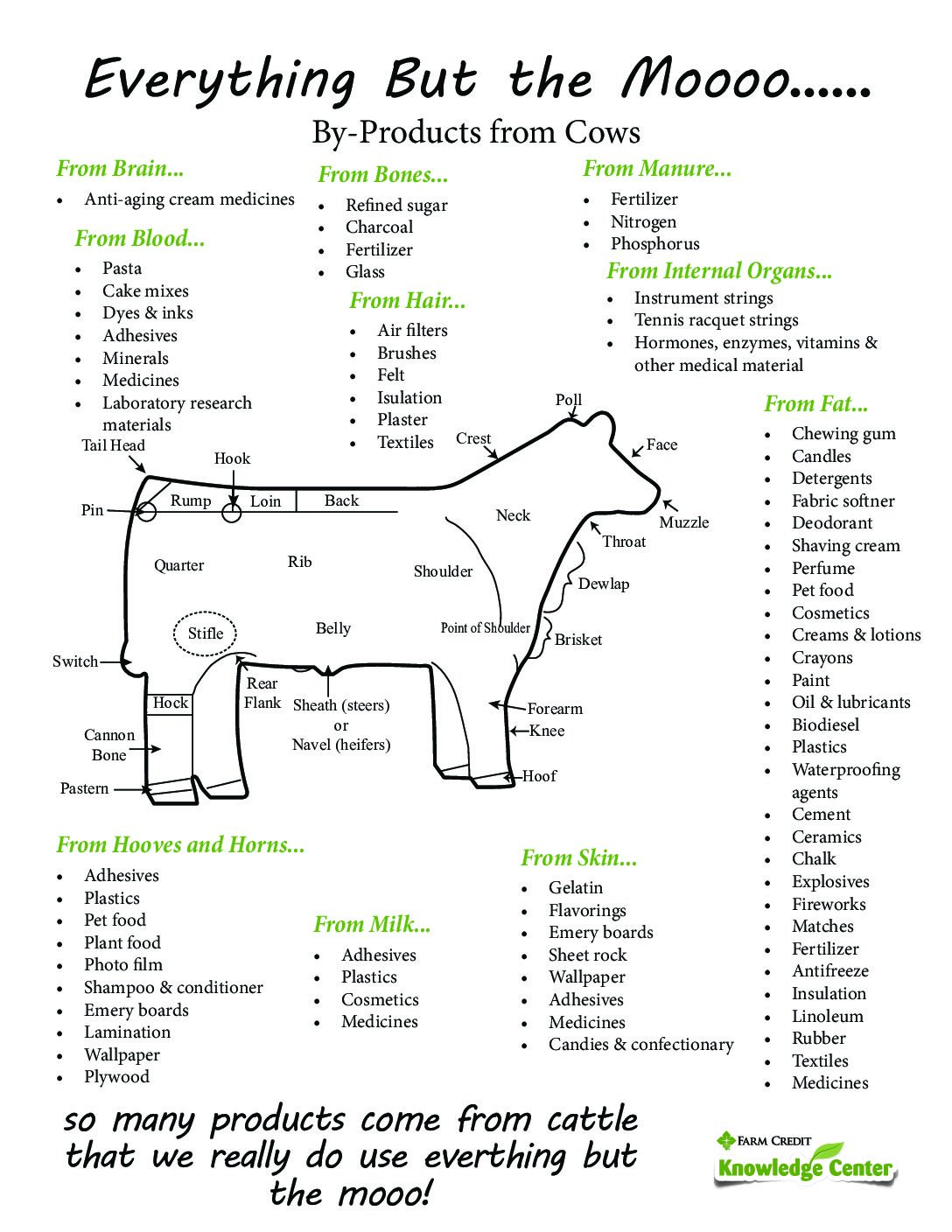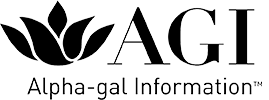Mammalian Byproducts
A Guide for People with Alpha-gal Syndrome
When patients continue to have reactions after removal of all obvious forms of alpha-gal from their diet, we turn to the ‘hidden’ forms of mammalian exposure despite little or even no evidence that such moieties actually contain alpha-gal. In many cases, it is challenging to make informed assessment of risk based on the available data and we approach the avoidance diet on an individual patient basis. We know from experience with childhood food allergies that some patients can tolerate foods with ‘processed in’ or ‘may contain’ labels and this characteristic appears to hold consistent for AGS. Equally, there may be some evidence that patients on a strict avoidance diet could experience anaphylaxis after ingestion of minimal amount of allergen and this has mirrored our overall clinical experience. (1)
Russian Roulette
Unknown Risks to Unknown Ingredients
A minority of people with alpha-gal syndrome cannot tolerate even trace amounts of alpha-gal found in foods made with some mammalian byproducts. For this segment of our population, avoiding foods and other products that can trigger reactions is difficult and fraught with uncertainty. Complicating factors include:
- Mammalian byproducts are in an untold number of foods, personal care and household products, as well as tens of thousands of pharmaceutical and other medical products.
- Alpha-gal reactions tend to be severe. Up to 60% of people with AGS have anaphylactic reactions, and 30-40% experience cardiac symptoms. Anaphylactic reactions to mammalian byproducts in foods, drugs, and other pharmaceuticals have been well-documented, and reactions to personal care and household products are routinely reported within the alpha-gal community.
- Evidence for the presence or absence of alpha-gal in most mammalian byproducts is lacking (1). We know that for some, like bovine serum albumin, alpha-gal has not been detected (2). In the absence of more information, the most reactive of us have little choice but to avoid all mammal-derived ingredients or play Russian roulette.
- Mammalian byproducts are numerous and have obscure names, like anthropodeoxycholic acid and glyceryl tristearate.
- There is no list of mammalian byproducts, and in the absence of federal or industry assistance, it is virtually impossible to create a complete one. We have done our best (see below).
- There are no regulatory requirements for the labeling of foods with mammalian content.
- 3-5% of people with AGS go on to develop mast cell syndromes (1), and for this group, it’s not always obvious as to whether reactions are triggered by trace amounts of alpha-gal or are related to mast cell issues.
Up to 3% of the population in huge swathes of the U.S. are estimated to have clinical alpha-gal syndrome (1), including anaphylactic reactions (2)–easily over a million people. We need the FDA (and/or USDA where appropriate) to:
- Add alpha-gal to the list of major food allergens regulated under the Food Allergen Labeling and Consumer Protection Act of 2004 (FALCPA)
- Produce a complete and regularly updated list of all mammalian byproducts and regulate their naming
- Regulate the use of the terms “vegan” and “plant-based” in the labeling of both traditionally produced and cell-based products and restrict producers and manufacturers from using them on products that contain mammalian ingredients.
- Require the disclosure of the use of mammalian byproducts (and carrageenan which also contains alpha-gal) as processing aids, such as:
- The use of gelatin in the clarification of juice and wine
- The addition of carrageenan to fish as a water retention agent prior to processing or as a spray on fresh cut fruit
- Support the creation of a complete, regularly updated, and publicly accessible database of pharmaceuticals and other medical products (including vaccines, bandages, sutures, lubricants, etc.) listing mammal-derived ingredients and identifying them as such. Anaphylactic reactions to carrageenan in medical products have been documented, and carrageenan content should be included.
- Expedite the approval of products, including cell-based products, produced using alpha-gal-free livestock, such as the GalSafe pig, and cell lines.
A Guide for the Highly Reactive: tips on avoiding alpha-gal and identifying your triggers. Coming soon!


The Most Problematic Mammalian Byproducts
For those of us with alpha-gal syndrome who react to trace amount of alpha-gal in mammalian byproducts, not all byproducts are equally problematic. It seems probable that some byproducts contain more alpha-gal than others and that some may not contain any alpha-gal at all. More research is needed. People with alpha-gal syndrome often report that they are most likely to react to the following byproducts:
- Tallow
- Whey
- Gelatin
- Vitamin D3 (unless vegan it is usually made from lanolin)
- Glycerin (when derived mammals–some is plant-based)
- Mono- and di- glycerides (when derived from mammals)
A Partial List of Mammalian Byproducts
Created by Avonlea Fisher with help from Sharon Forsyth, Crystal Norton, and Reid Rumelt
- This is only a preliminary list of mammal-derived ingredients, not a comprehensive list. There are potentially dozens if not hundreds of additional mammalian byproducts used in foods, medications, and other products, but we hope it will help you begin to familiarize yourself with potential triggers.
- Many of the below ingredients can be derived from either mammalian or non-mammalian sources.
- The alpha-gal content of the vast majority of these byproducts has not been established.
- If you are unsure if an ingredient in a product is derived from a mammal, contact the manufacturers and ask, although often they do not know either.
- If you see an ingredient that is NOT on this list, and you don’t recognize it, you need to research it yourself.
- In the U.S., the term “vegan” is not regulated by the FDA and is no guarantee that a product is mammal-free, but vegan “certified” products are safer. To learn more about interpreting vegan labeling, see Darcie Clement’s explanation here.
- Keep in mind that carrageenan also contains alpha-gal and also is listed under a variety of different names. Carrageenan will be dealt with on another page Carrageenan: A Guide for People with Alpha-gal Syndrome.
- To learn more about available ingredient lists and the virtually insurmountable challenge of creating a comprehensive list in the absence of support from the livestock industry or federal government, read Darcie Clement’s excellent blog post on the subject here.
The table below is an abbreviated version of a Google Spreadsheet that contains more information, such as whether byproducts are dairy vs non-dairy, source of information, E-number (food additives), and approval (food additives). This spreadsheet can be found here:
AGI Mammalian Byproducts Spreadsheet temporarily unavailable.
This table, the database it is built on, and the data it contains is copyrighted. For permission to use this information contact alphagalinformation@gmail.com.
Mammalian byproducts database is temporarily down.
All the information on alphagalinformation.org is provided in good faith, but we, the creators and authors of the Alpha-gal Information website offer no representation or warranty, explicit or implied, of the accuracy, adequacy, validity, reliability, availability, or completeness of any information on this site. Under no circumstances should we have any liability for any loss or damage incurred by you as a result of relying on information provided here. We are not physicians or medical professionals, researchers, or experts of any kind. Information provided in this website may contain errors and should be confirmed by a physician. Information provided here is not medical advice. It should not be relied upon for decisions about diagnosis, treatment, diet, food choice, nutrition, or any other health or medical decisions. For advice about health or medical decisions including, but not limited to, diagnosis, treatment, diet, and health care consult a physician.
READ FULL DISCLAIMER>
